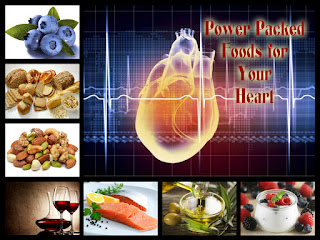Are you bored out of your daily tasteless food which you need to take just to keep your heart healthy? Good News for YOU! Researchers say that you don't need to compromise on food any further. Grab these tasty foods today and live well.

With cardio vascular ailments the top rated killer of men and women, you would surely wonder about any cure or health habits that could drastically make this trend of fatal deaths see a downfall would be great news. Isn't it? Well, the most powerful treatment is so simple that most people find it unworthy to be followed. But, practically it has been researched that if you start heart healthy diet since childhood, you're less likely to suffer a heart attack ever in your lifetime.
"In traditional societies, where people don't eat processed foods, heart disease is rare."
– cardiologist Arthur Agatston, Author The South Beach Wake-Up Call
Fruits and vegetables are always a cardiologist favorite diet. But taking these for continuous days can make your taste buds go jaded. So what to do next? Here's what else you can add up to your heart-healthy diet book for a longer life.
Blueberries
An agricultural promotion group, the U.S. Highbush Blueberry Council, opines that blueberries' antioxidant element help in lowering down the stocked LDL cholesterol "bad" in artery walls, the root cause of cardiac arrest. These antioxidant elements countercheck risky repercussions of metabolism popularly known as free radicals that can cause cancer and several other age specific infections.
Another beneficiary element - Anthocyanin (majorly sourced in blueberries) can also be consumed from juicy blackberries, Oregon black raspberries, and nutritious red grapes. Heart specialists say just a single cup of blueberries a day can keep kids energized. Are the little ones at your home quite picky eaters in approach? Then just add little fresh, chilled, or dried variety of blueberries to your recipes of cereal, sweet muffins, or dark dinner dishes and see the change in your kids' food choice. Kids would jump in to the dining table to taste your special flavors... Bet!!!
Whole grains
With time and recent health studies finding its way to the everyday health schedule of people, carbohydrates have received its due credit. However, paleo diet advocates may not go along with this statement.
Whole grains such as - wheat including einkorn, rice, or barley, buckwheat, bulgur, corn, farro etc even today serve as the best sources for fiber and vitamin B your heart require to stay healthy. Vitamin B ensures non-augmentation of homocysteine (a threat for cardiac illnesses).
Nuts
The little yet superfoods namely - peanuts, almond, pine nuts, pecans, crude almonds, walnut etc works wonder for your heart. Orange County Cardiologists say that these nuts are best for controlling LDL cholesterol. You can consume these at any point of time such as with your fresh yogurt recipe, evening snacks etc.
Greek yogurt
The more yogurt you take the lessened is the risk of cardiac stroke. Greek yogurt is rich in protein and held responsible for aligning your carbs consumption, you take it every day. You can enrich your bowl of yogurt by adding sliced and diced fruits, crushed nuts etc. You just need to make sure that you cut down substantially on your intake of processed foods with additional sugar, that neutralizes any benefit you receive from selecting yogurt as a diet menu in the first place.
Fish
The protein packed sources - FISH are the true delights when it comes to eating together. Additionally, fishes with its special quality of omega-3 fatty acids account for lesser risk of aggravated cardiac illness.
Extra-virgin olive oil
Did you ever try recipes made up of extra-virgin olive oil from Spain, Italy, or Greece? Or you didn't try in the fear of taking extra fat? Don't worry; it's healthy and tasty at the same time! Olive oil consists of unsaturated fat that puts your undesired cholesterol level in control, specifically, when contemplated with butter, cheese or margarine.
Wine
Drink as much as you can! Ooh not really. Excess of anything doesn't work well. Who knew that wine, an alcoholic beverage could be a health beneficiary adult drink. Cardio professionals opine that antioxidant resveratrol is the major element that contributes immensely to the cardiovascular benefits.


